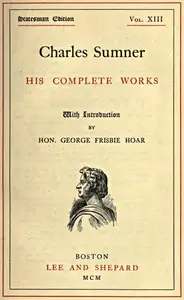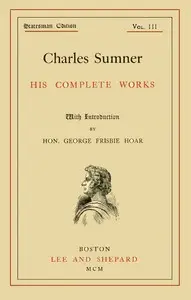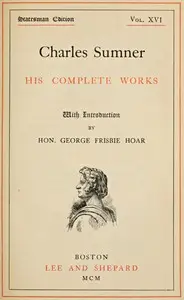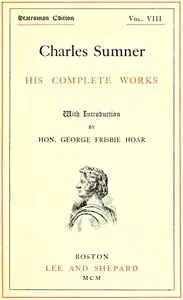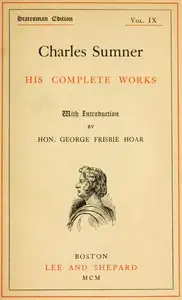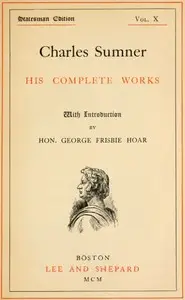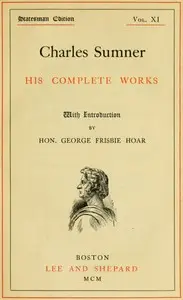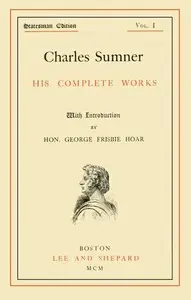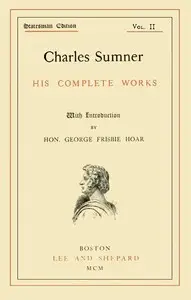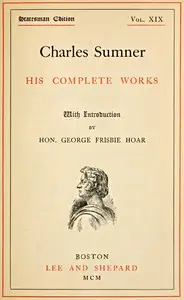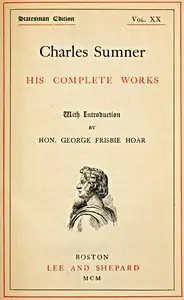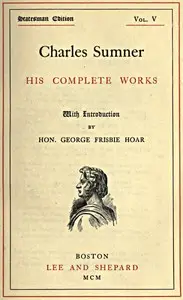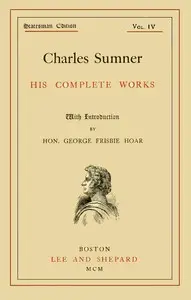"Charles Sumner: His Complete Works, Volume 12 (of 20)" by Charles Sumner is a compilation of political speeches and correspondence from a pivotal era in American history, offering a window into the heart of the Civil War and Reconstruction. The book highlights key events and ideas from the mid-1800s, examining the fight for emancipation, the complexities of Reconstruction, and the intense political clashes surrounding slavery and civil rights; with bold pronouncements and insightful commentary. Sumner's passionate viewpoints shaped the political conversations of the era, as he celebrates Lincoln's victory as a triumph for freedom, condemns the Democratic party's ties to the rebellion, and expresses his ambitions to secure justice and protect the civil rights of freedmen, setting the stage for the challenges and opportunities that lay ahead.
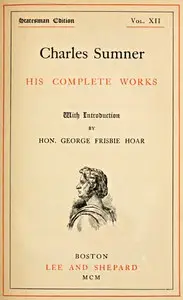
Charles Sumner: his complete works, volume 12 (of 20)
By Charles Sumner
Witness a nation divided and the impassioned fight for equality through powerful words forged in the fires of war and political upheaval.
Summary
About the AuthorCharles Sumner was an American lawyer, politician, and statesman who represented Massachusetts in the United States Senate from 1851 until his death in 1874. Before and during the American Civil War, he was a leading American advocate for the abolition of slavery. He chaired the Senate Foreign Relations Committee from 1861 to 1871, until he lost the position following a dispute with President Ulysses S. Grant over the attempted annexation of Santo Domingo. After breaking with Grant, he joined the Liberal Republican Party, spending his final two years in the Senate alienated from his party. Sumner had a controversial and divisive legacy for many years after his death, but in recent decades, his historical reputation has improved in recognition of his early support for racial equality.
Charles Sumner was an American lawyer, politician, and statesman who represented Massachusetts in the United States Senate from 1851 until his death in 1874. Before and during the American Civil War, he was a leading American advocate for the abolition of slavery. He chaired the Senate Foreign Relations Committee from 1861 to 1871, until he lost the position following a dispute with President Ulysses S. Grant over the attempted annexation of Santo Domingo. After breaking with Grant, he joined the Liberal Republican Party, spending his final two years in the Senate alienated from his party. Sumner had a controversial and divisive legacy for many years after his death, but in recent decades, his historical reputation has improved in recognition of his early support for racial equality.

